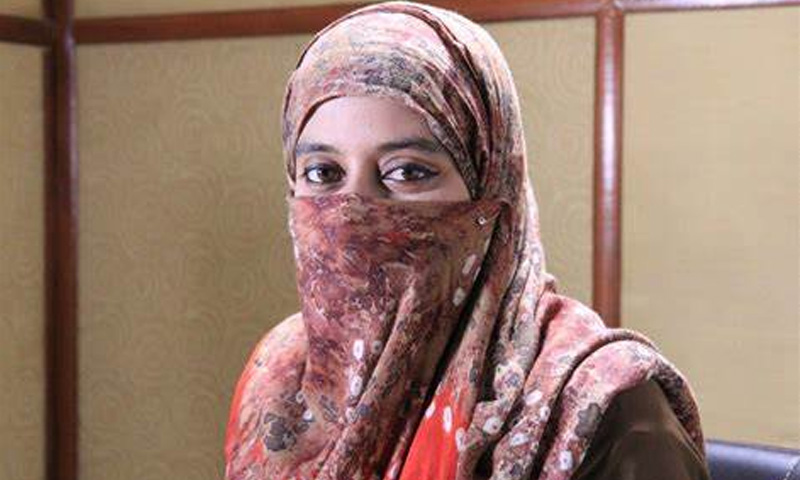- Web Desk
- 8 Hours ago
The Fall of Hasina and the Rise of People Power
The recent resignation and flight of Sheikh Hasina, the long-time Prime Minister of Bangladesh, marks a dramatic shift in the political landscape of South Asia. As over a hundred thousand students marched towards the PM House, demanding the end of a corrupt quota system in government jobs, the cracks in Hasina’s regime became too large to paper over. The Supreme Court’s last-minute concession to reduce the quota system to 5% was a band-aid on a bullet wound, students and citizens alike had had enough. The demand for justice over the brutal killings of 300 student protestors became the rallying cry for a nation long stifled under the weight of autocracy.
The intervention of the Bangladeshi military, led by Army Chief General Waker Uz Zaman, has put the country at a critical juncture. While the general has vowed to oversee the formation of an interim government and promised elections, history has shown us that such promises can often ring hollow. We have seen similar assurances in the past, from General Zia-ul-Haq in Pakistan to the military regimes in Sudan and other parts of Africa, only to witness prolonged military rule and democratic backsliding. The pressure on General Waker to deliver on his promise is immense, but the stakes are even higher. Failure to organize free and fair elections could push Bangladesh to the brink of civil war.
The military’s involvement in the governance of Bangladesh is fraught with complexities. The army, once a symbol of national pride, is now viewed with suspicion, largely due to its role in human rights abuses under Hasina’s regime. The Rapid Action Battalion, a paramilitary force under the army’s umbrella, was sanctioned by the United States for gross violations of human rights. The army’s tacit support for Hasina’s oppressive tactics has tarnished its reputation, and the resentment among the populace is palpable.
The situation in Bangladesh remains volatile. The streets are still not safe as clashes between civilians and security forces continue. Hasina’s hurried escape to India, where she met with National Security Advisor Ajit Doval, underscores her reliance on Indian support throughout her tenure. However, her once secure position is now in tatters, with the United Kingdom refusing her asylum due to her track record of human rights violations. The situation has sparked further unrest as foreign elements exploit the chaos, with Hindu-Muslim tensions flaring as temples burn and houses of pro-Hasina supporters are set ablaze. These false flag operations aim to deepen divisions and destabilize the region further.
For India, the loss of a strategic ally in Hasina is a significant blow. Under her leadership, Bangladesh had consistently aligned with Indian interests, but the tide has turned. As popular sentiment in Bangladesh shifts, Pakistan has a unique opportunity to recalibrate its relationship with Dhaka. The new Bangladesh, born out of the ashes of Hasina’s regime, is more receptive to Pakistan, reflecting a historic shift in South Asian geopolitics. As Mushahid Hussain Syed aptly observed, this is a pivotal moment for Pakistan to forge stronger ties with Bangladesh. With India’s influence waning in the region, having already lost favour in the Maldives, Nepal, and potentially Sri Lanka, Pakistan must pursue a proactive South Asian policy that prioritizes regional unity and cooperation.
India’s diplomatic missteps are glaring. By providing asylum to Hasina, Narendra Modi has missed a crucial opportunity to win over the new Bangladeshi government and its people. This was a moment for India to distance itself from Hasina’s authoritarian legacy and build bridges with the emerging leadership in Dhaka. Instead, Modi’s administration has alienated a key neighbour at a time when India’s relations with China, Pakistan, and even Iran are strained.
As the political landscape in Bangladesh shifts, deeper questions emerge about the country’s identity and leadership. The legacy of Sheikh Mujibur Rahman, once revered as the father of the nation, is now under scrutiny. Hasina’s taunts of labelling protesting students as ‘Razakars’, a term historically associated with collaborators against Bangladesh’s independence, backfired spectacularly. The youth, who embraced the label defiantly, are now questioning the very foundations of their nation’s history. Revelations about Mujib’s attempts to establish a one-party state under BAKSAL, and his suppression of political dissent and press freedom, are surfacing, challenging the sanitized narrative that has long been propagated.
This populist wave in Bangladesh mirrors movements across the globe, where social media has become the battlefield for ideological wars. The rise of populism, seen in countries like the United States, India, and Pakistan, is now taking root in Bangladesh, signaling the end of the old guard and the beginning of a new era. The interim government and the military must heed this change and respect the will of the people. The future of Bangladesh depends on it.
For Pakistan, the events in Bangladesh serve as a sobering reminder. The establishment in Islamabad must learn from Dhaka’s turmoil and recognize the importance of respecting the people’s mandate. When the time comes to make tough decisions, it is the support of the common man that will determine the resilience of the nation. As Bangladesh stands at the crossroads, so too does Pakistan-and the choices made today will shape the region’s future for generations to come.






